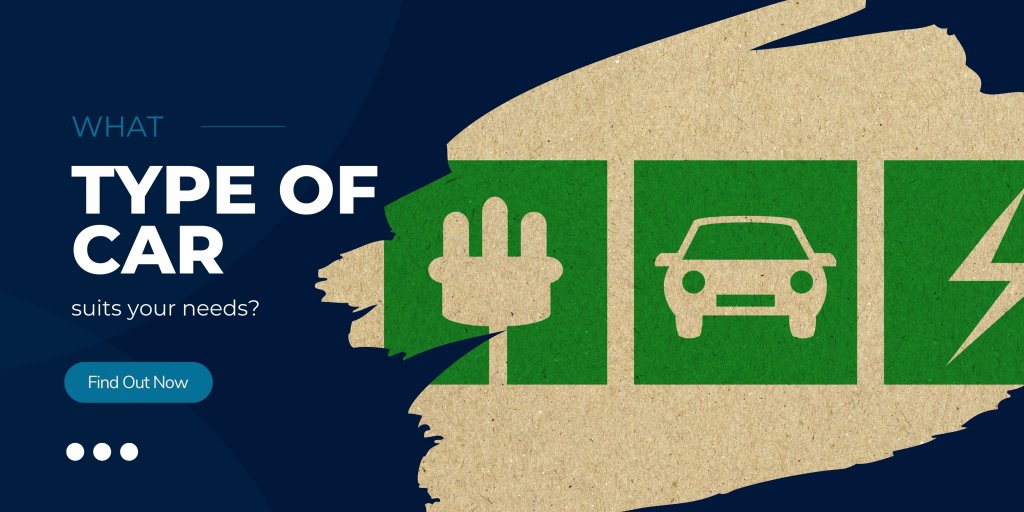
Reading Time: 13 minutes
In this fully-loaded Electric Cars Auto Shipping guide, we visit the expanding, dynamic, world of electric vehicle transport! Additionally, we drive into the electric car revolution and the ins and outs of EV auto shipping. Discover how the growing sales of electric vehicles and robust support infrastructure pave the way for greener transport. If you are considering Electric Cars Auto Shipping, we’ve got the information you need.
Electric vehicles are changing the game in the car industry. As well as that, advances in technology and concerns about the environment are pushing more people to consider electric cars. Besides. this change in mindset is boosting the demand for electric vehicles. In addition, creating new opportunities in the electric car sector.
What’s behind this shift, and how does it connect to the transportation of electric cars? What environmental benefits do electric vehicles bring? We’ll explore these topics in depth to provide you with a clear understanding.
This guide is absolutely for car enthusiasts, forward-thinking entrepreneurs! On the other hand, anyone intrigued by the evolution of transportation will enjoy! It serves as your best source for learning about electric vehicle transportation and shipping. Are you ready to start this journey? Let’s go!
Relevance and Growth of Electric Vehicles
Electric vehicles (EVs) have been making waves in the auto industry in recent years. With advancements in technology, increased environmental awareness, and government incentives, the market for electric vehicles has experienced significant growth. In this section, we will explore:
- The current market size.
- Growth projections.
- The numerous business opportunities that arise from the rise of electric vehicles.
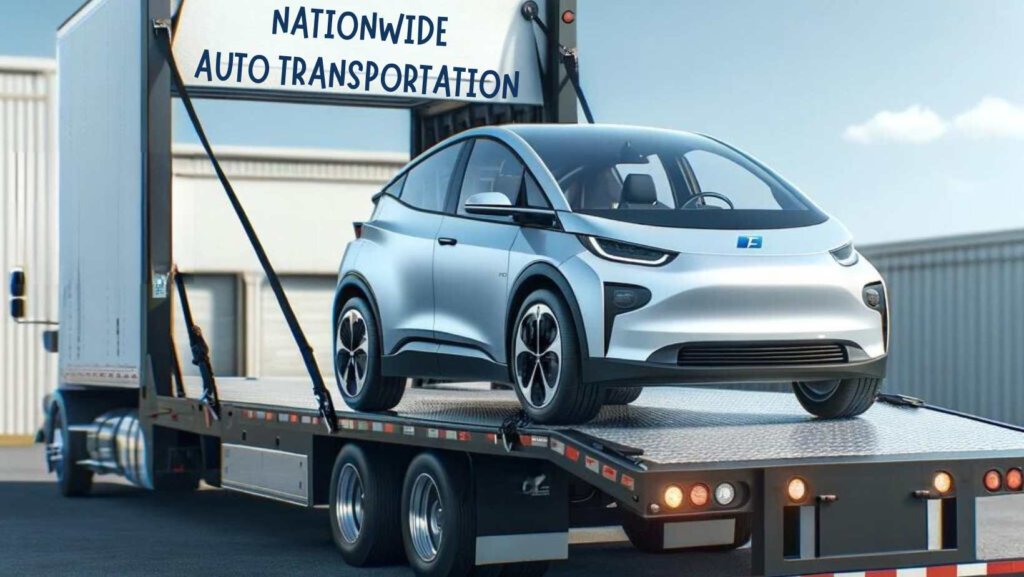
Current Market Size and Projections
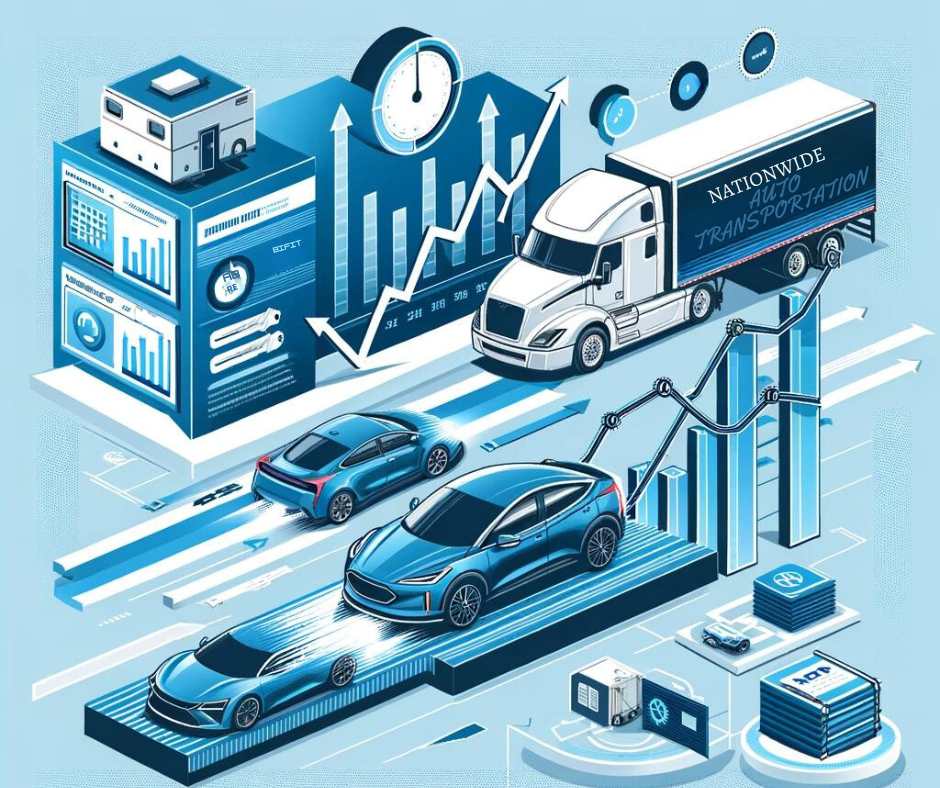
The revenue in the Electric Vehicles market is projected to reach US$561.3 billion in 2023. This means growth at a rate of 10.07% annually from 2023 to 2028. The electric vehicle market in the US saw nearly 918,500 light electric vehicle sales in 2022.
Showing increases from 0.2 percent in 2011 to 4.6 percent in 2021. Moreover, the global electric vehicle market is projected to grow to USD 693.7 billion by 2030. This is with a CAGR of 17.3%. Finally, these figures clearly show the immense potential of the EV market for growth and investment.
Explore electric vehicle data and trends through the U.S. Department of Energy’s Alternative Fuels Data Center.
Annual Growth Rates | EV auto shipping
It is said that the electric vehicle market will reach a value of $1.9 trillion by 2028. Notably, with a CAGR of 37.1% from 2021-2028. This growth trajectory highlights the rising demand for electric vehicles and the industry’s potential for continued expansion. Consumers are more conscious about the environment and seek alternatives to traditional gasoline vehicles. As this happens. the demand for EVs grows.
Business Opportunities
First and foremost. the growing electric vehicle market creates various business opportunities! Espescially for entrepreneurs, manufacturers, and service providers. At this time, some of the key opportunities in this sector include:
- Battery Manufacturing: With the increasing demand for electric vehicles, the production and supply of high-quality batteries are crucial. This presents a significant opportunity for battery manufacturers to meet the growing demand.
- Charging Infrastructure: Convenient and accessible charging infrastructure is of utmost importance for electric vehicle owners. Definitely, the need for EV charging stations will increase as more people shift to electric vehicles. As well as that, entrepreneurs can explore opportunities in setting up EV charging stations along highways, parking lots, and residential areas.
- Vehicle Service and Maintenance: As the number of electric vehicles on the road continues to rise, the availability of vehicle service facilities, spare parts, and related expenses are in high demand. Entrepreneurs can consider opening specialized EV service centers to cater to the maintenance and repair needs of EV owners.
- Auto Shipping for Electric Vehicles: The surge in the popularity of electric cars and hybrids has led to an increased demand for auto shipping services. Transporting electric vehicles requires specialized knowledge and expertise. Importantly, auto shipping companies can capitalize on this market growth by offering tailored solutions for shipping electric vehicles.
The growth of electric vehicles presents immense opportunities for individuals and businesses alike. Entrepreneurs need to stay informed about the latest trends and developments in the electric vehicle market to seize these opportunities and contribute to the sustainable future of transportation.
“The electric vehicle market is rapidly expanding, with projected revenues reaching billions of dollars. This growth opens up numerous business opportunities and prospects for entrepreneurs to capitalize on.”
Increased Consumer Interest | EV auto shipping
The automotive industry is obviously undergoing a major transformation! Indeed, consumers around the world are showing an increased interest in electric vehicles (EVs). Here are some key reasons why consumer interest in EVs is on the rise:
Environmental Awareness and Regulations | Electric Cars Auto Shipping
Without a doubt, one of the main driving forces behind the increased interest in EVs is the growing concern for the environment. Consumers are becoming more aware of the impact of traditional gasoline-powered cars on air pollution and climate change.
As a result, they are seeking greener and more sustainable alternatives, and electric vehicles fit the bill perfectly. Above all, governments worldwide are also implementing regulations and incentives to encourage the adoption of EVs. Obviously, further fueling consumer interest.
Learn more about the environmental impact of electric vehicles on the U.S. Environmental Protection Agency website.

Rising Fuel Costs
Importantly, the rising cost of gasoline is another factor that is pushing consumers towards electric vehicles. Besides, with electric cars, drivers can significantly reduce their fuel costs. Clearly electricity is generally cheaper than gasoline. Moreover, electricity prices tend to be more stable than fossil fuel prices, offering greater financial predictability in the long run.
Technological Advancements and Improved Performance
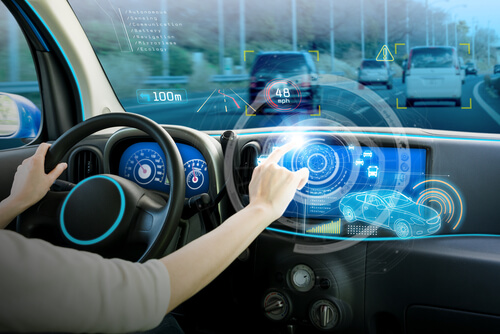
It should be noted that today’s electric vehicles offer impressive technological advancements that appeal to consumers.
EVs have cutting-edge features:
- Regenerative braking.
- Advanced infotainment systems
- Autonomous driving.
- Known for their:
- smooth acceleration
- quiet operation
- instant torque
- providing an exciting and futuristic driving experience.
Looking for seamless vehicle transportation solutions? Check out our latest post where we delve into the latest trends and technologies ensuring your vehicle arrives safely at its destination. From telematics to autonomous vehicles, learn how the industry is evolving. Read more about vehicle transportation solutions here.
Government Incentives and Tax Credits | EV Auto Shipping
Furthermore, governments worldwide actively offer incentives and tax credits, driving consumers towards electric vehicles. Subsequently, these benefits include cash rebates, grants, and even perks like preferential parking and lower toll fees. Moreover, these efforts significantly lower the costs and enhance the appeal of owning electric vehicles.
Electric Cars Auto Shipping | The Path to Lower Costs and Greener Roads
Simplified Maintenance for Electric Vehicles
Unlike electric cars, with their fewer moving parts, traditional gasoline engines, offer large savings on upkeep. This means less need for oil changes and gearbox repairs. Definitely increasing the life of the vehicles.
Innovations in EV Auto Shipping Infrastructure
Undoubtedly, the EV charging network is experiencing rapid growth. Importantly, bringing an array of accessible charging solutions to the forefront. In particular, home installations, workplace provisions, and public charging spots are becoming commonplace. Moreover, fast-charging advancements are revolutionizing the convenience of electric vehicle ownership.
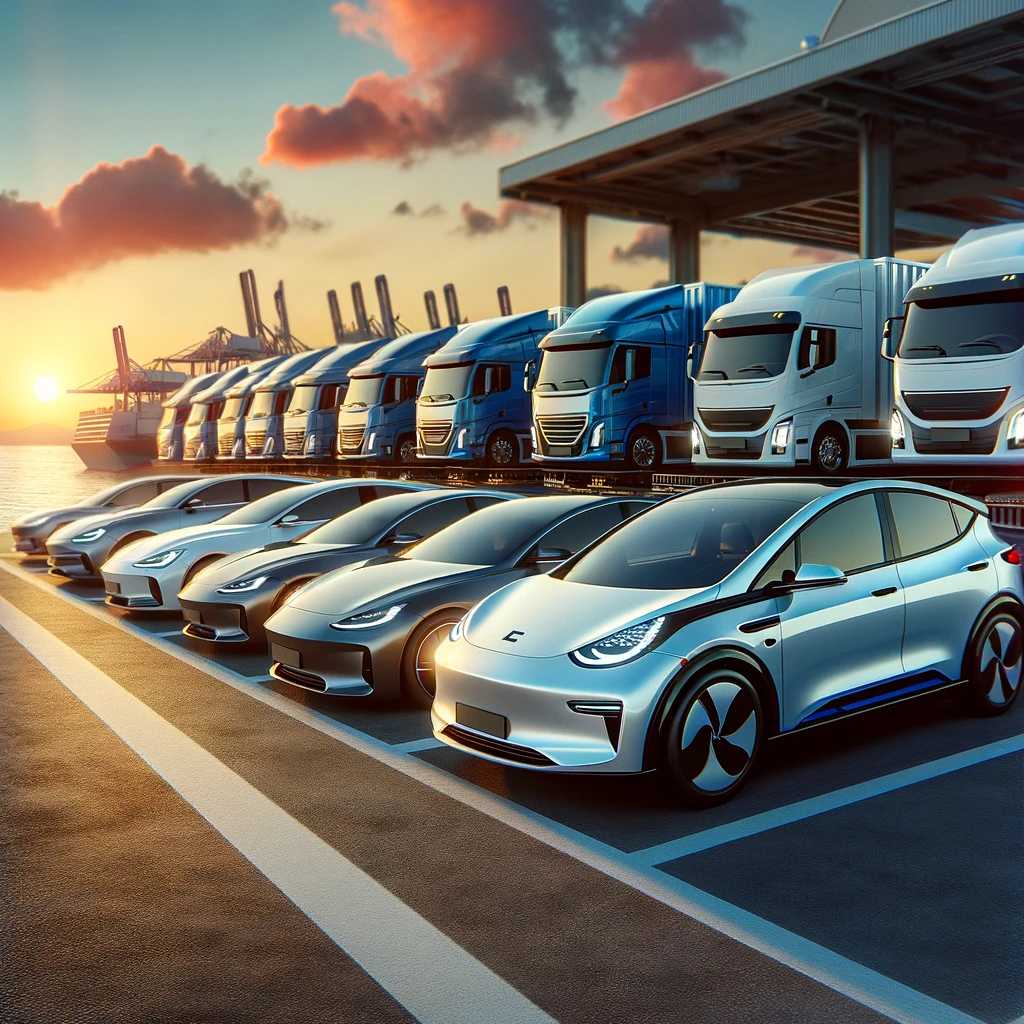
The Surge in Electric Vehicle Popularity
With these advancements in technology and infrastructure, consumer interest in electric cars is reaching new heights. Following this, the market is responding with an array of affordable models. Without a doubt, propelling a swift move towards electric mobility. This shift isn’t just beneficial for drivers but also for the environment, highlighting the broader impact of choosing electric cars auto shipping. Now presents an opportune moment to join the electric movement.
Infrastructure for Electric Vehicles
The infrastructure for electric vehicles (EVs) plays a crucial role in their widespread adoption and success. Without the necessary support systems in place, EVs would not be able to meet the demands of consumers. In this section, we will explore the various components of infrastructure that are essential for the growth of electric vehicles.
EV Charging Infrastructure
The main concerns for EV owners is access to enough charging stations. The availability and convenience of charging options are critical factors that influence consumers’ decision to purchase an electric vehicle. Here are a few key points about EV charging infrastructure:
- Types of Charging: There are three main types of charging stations for EVs:
- Level 1 Charging: This is the simplest and slowest form of charging, typically using a standard household outlet. It can take several hours to fully charge an EV using this method.
- Level 2 Charging: This type of charging station requires a higher voltage and can charge an EV in a matter of hours. Level 2 charging stations are commonly found in residential areas, workplaces, and public locations.
- DC Fast Charging: This is the fastest form of charging and is primarily used for long-distance travel. DC fast charging stations can charge an EV to 80% in as little as 30 minutes.
- Expansion of Charging Network: Efforts are being made to expand the charging network to ensure that EV owners have convenient access to charging stations. Governments, private companies, and utilities are working together to build a robust charging infrastructure.
- Smart Charging Solutions: Smart charging solutions are being developed to optimize the use of charging stations and manage the demand on the electricity grid. These solutions can help distribute the charging load more efficiently and reduce the overall cost of charging.
Range Improvements
Certainly, here’s the content presented in a table format:
| Aspect | Details |
|---|---|
| Battery Technology | Development of lithium-ion batteries has greatly extended EVs’ range. Ongoing enhancements aim to boost battery capacity and efficiency. |
| Range Anxiety | Concerns over running out of power are diminishing as EVs can travel further on a single charge, lessening consumer worries. |
| Vehicle-to-Grid (V2G) Technology | V2G allows EVs to supply energy back to the power grid, promising to improve energy systems and offer a more adaptable infrastructure. |
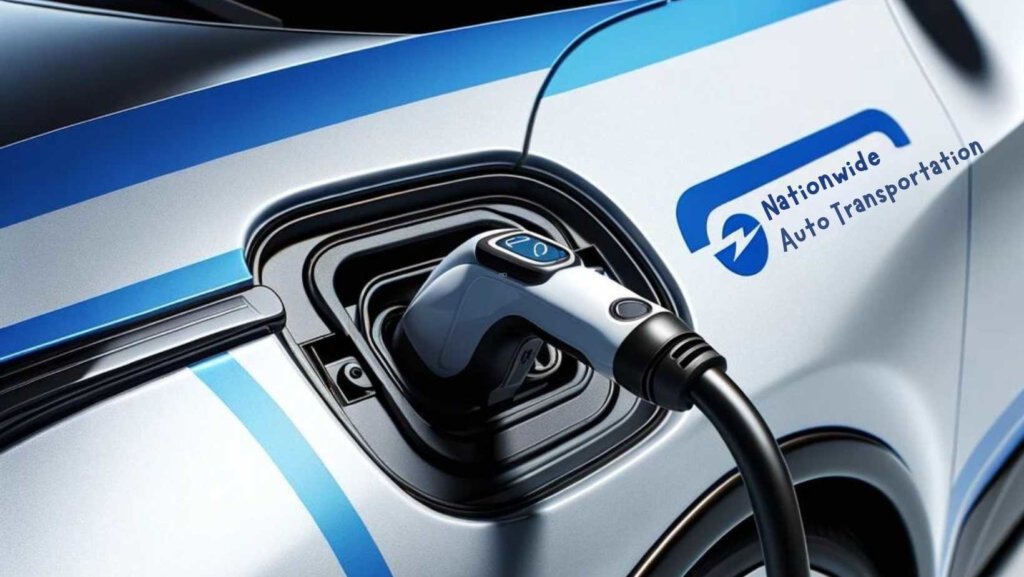
Service Facilities and Spare Parts
The number of electric vehicles on the road increases daily. This means that the demand for service facilities and spare parts will also grow. It is essential to have a well-established network of service centers to cater to the maintenance and repair needs of EV owners. Here are a few key points in this regard:
- Certified Technicians: The development of a skilled workforce of technicians who are trained in the maintenance and repair of electric vehicles is crucial for the growth of the electric vehicle market.
- Availability of Spare Parts: Ensuring the availability of spare parts for electric vehicles is essential to minimize downtime and provide timely repairs. Manufacturers and service centers should work together to maintain adequate stocks of spare parts.
- Cost of Repairs: The cost of repairs for electric vehicles can vary depending on the model and the availability of spare parts. As the market matures and more EVs are in circulation, the cost of repairs is expected to decrease.
Having a robust infrastructure for electric vehicles is vital to support their widespread adoption. Efforts are already underway to improve EV charging infrastructure, extend the range of EVs, and establish service facilities and spare parts networks. As these infrastructure components continue to develop, we can expect to see even greater growth in the electric vehicle market.
“The availability of charging infrastructure remains one of the most significant barriers to widespread EV adoption, so it’s crucial that we continue to invest in this area.”
– Elon Musk
Developments in Auto Shipping for Electric Vehicles
As the popularity and demand for electric vehicles (EVs) continue to grow, there have been significant developments in the auto shipping industry to accommodate these eco-friendly cars. Transporting electric vehicles requires special considerations and expertise to ensure their safe and efficient delivery. In this section, we will explore the recent advancements and changes in auto shipping for electric vehicles.
1. Adapting Supply Chain Infrastructure
The auto-mobility sector recognizes the need to adapt and rethink its current supply chain infrastructure to accommodate the unique requirements of electric vehicles. Traditional gasoline-powered vehicles are shipped differently to EVs. Thankfully, the industry is responding accordingly. Auto shipping companies are investing in the necessary equipment, technology, and training to handle the specific requirements of electric vehicles to ensure their safe and secure transport.
2. Increased Demand for Electric Vehicle Shipping
There has been a noticeable increase in requests to transport electric cars and hybrids in recent years. As more people make the switch to electric vehicles, the demand for auto shipping services that specialize in transporting these eco-friendly cars has grown exponentially. Auto shipping companies are now equipped to handle the specific needs of electric vehicles, including their delicate battery systems and unique charging requirements.
3. Specialized Equipment for Electric Vehicle Transportation
Transporting electric vehicles requires specialized equipment. This guarantees their safety during transit. With that, auto shipping companies are investing in specialized trailers and vehicle handling methods that cater specifically to electric cars. These trailers are designed with features like reinforced floors and secure tie-down systems to safely transport electric vehicles without damaging their sensitive components. The use of such specialized equipment ensures that the transport of EVs is secure and minimizes any risks associated with their unique powertrain.
4. Trained and Certified Electric Vehicle Transport Specialists
To keep up with the evolving demands of the auto shipping industry, many companies have trained and certified their staff as electric vehicle transport specialists. These professionals understand the unique requirements of electric vehicles and are trained to handle them with utmost care. They have the necessary knowledge and expertise to ensure the safe loading, transportation, and unloading of electric vehicles. Guaranteeing a smooth shipping experience for EV owners.
5. Collaboration with EV Manufacturers and Dealerships
Auto shipping companies specializing in electric vehicle transportation have established strong partnerships and collaborations with EV manufacturers and dealerships. This collaboration ensures that the entire process, from the manufacturing line to the delivery at the dealership, is well-coordinated and efficient. By working closely with EV manufacturers and dealerships, auto shipping companies can stay up to date with the latest developments in EV technology and ensure the safe transportation of these vehicles to their destinations.
In conclusion, the growing popularity of electric vehicles has led to significant developments in the auto shipping industry. With specialized equipment, trained professionals, and collaborations with EV manufacturers and dealerships, auto shipping companies are well-equipped to handle the unique transportation needs of electric vehicles. These advancements ensure that EVs can be safely and efficiently transported to their destinations, contributing to the overall growth and adoption of eco-friendly transportation options.
Electric Vehicles and the Environment
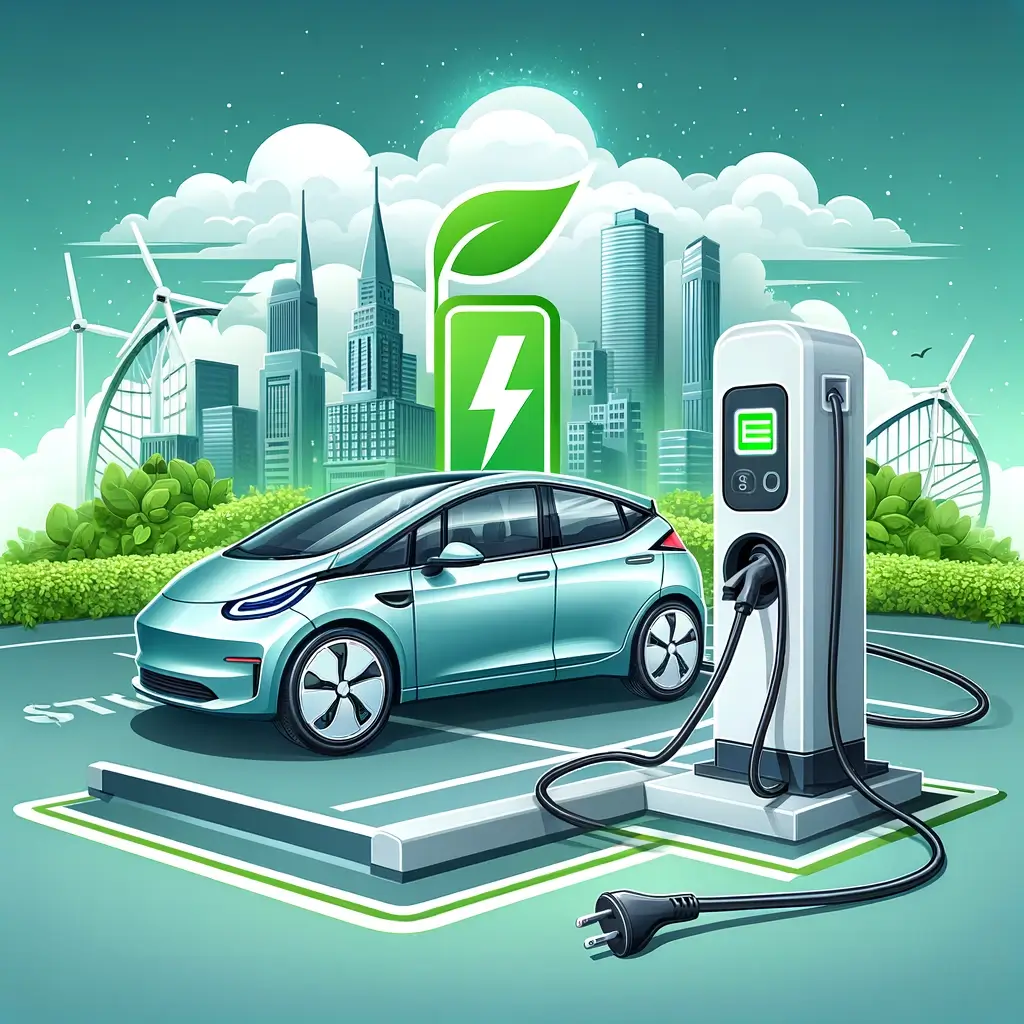
Electric vehicles (EVs) are not only changing the way we travel, but they are also making a significant impact on the environment. As people become more conscious of their carbon footprint and the need for sustainable transportation options, the rise of electric vehicles has gained immense popularity. In this section, we will explore the positive effects of electric vehicles on the environment.
Decreased Emissions
A major advantage of electric vehicles (EVs) lies in their capacity to lower pollutant outputs. Differing from conventional cars that operate on gasoline, EVs are powered by electricity, leading to the elimination of tailpipe emissions. As shown above, this leads to a substantial reduction in greenhouse gas emissions and air pollution. According to a study by the U.S. Department of Energy, electric vehicles produce 54% fewer greenhouse gas emissions compared to conventional vehicles.
Improved Air Quality and Electric Cars Auto Shipping
The elimination of tailpipe emissions also leads to improved air quality in cities and urban areas. Traditional vehicles release pollutants such as nitrogen oxides (NOx), particulate matter (PM), and carbon monoxide (CO) into the atmosphere, contributing to smog and respiratory issues. Electric vehicles produce zero emissions locally, which means they help reduce air pollution and create a cleaner and healthier environment for everyone.
Renewable Energy Integration
Electric vehicles also have a vital role in incorporating renewable energy sources. As shown earlier, EVs can act as energy storage as we incorporate more renewable sources such as wind and solar power into the grid. Using vehicle-to-grid (V2G) technology, electric vehicles can release surplus energy back into the grid during high-demand times or when renewable energy generation is insufficient. This bidirectional connection between electric vehicles and renewable energy enhances the efficient use of clean energy resources.
Noise Reduction
Certainly, in addition to reducing emissions, electric vehicles also contribute to noise reduction in urban areas. Unlike internal combustion engines that produce noise pollution, EVs operate quietly. This reduction in noise pollution creates a more peaceful environment for urban dwellers and contributes to a higher quality of life.
Battery Recycling Made Simple
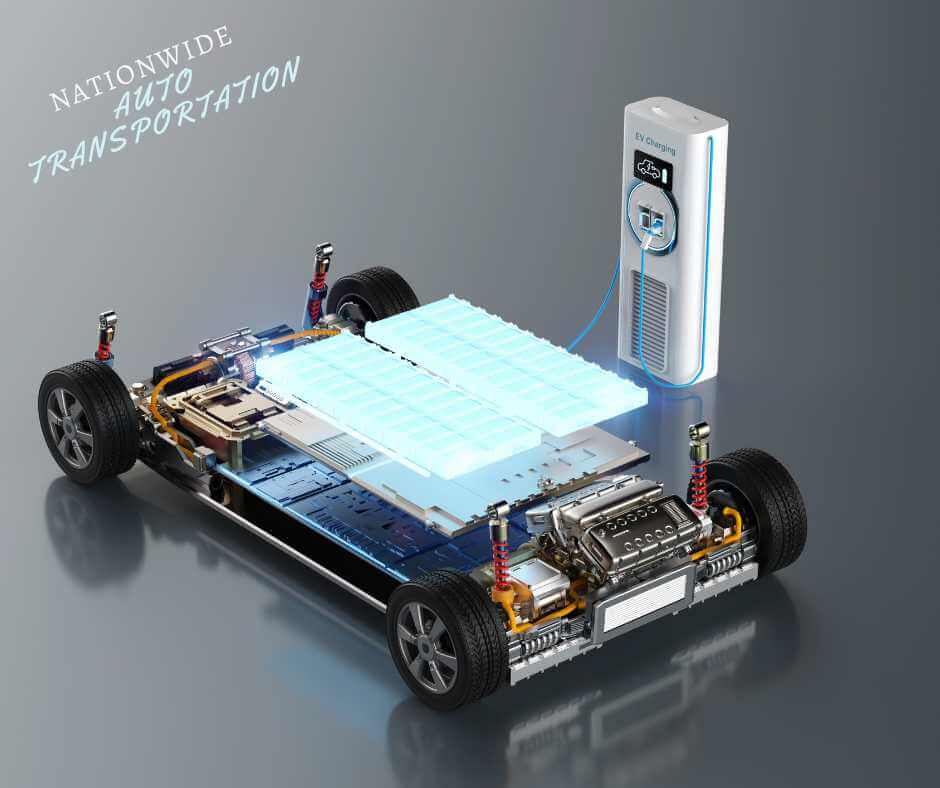
Understanding the Cycle
- Vital Role: Electric vehicle batteries power our journeys and are key to green transportation.
- Environmental Concerns: There’s a debate about the batteries’ effects on our planet.
- Active Solutions: The industry is stepping up, creating recycling programs for these batteries.
Reusing Resources
- Material Recovery: Through recycling, we reclaim important materials like lithium and cobalt.
- Resource Conservation: This process cuts down on the need to mine new resources. This further protects the environment.
The Bigger Picture
- Growing Popularity: More people are choosing electric vehicles every day.
- Clear Advantages: They’re seeing real benefits, like less pollution and better air quality.
- Energy Harmony: Electric cars fit right in with renewable energy, helping us use less and save more.
- Quieter Streets: They make our neighborhoods quieter.
- Continued Recycling Efforts: With ongoing work in recycling, these cars are driving us toward a cleaner future.
Embracing electric vehicles goes beyond personal gain. By choosing to drive electric, we collectively contribute to a healthier planet and a more sustainable future for all.
“The rapid growth in electric vehicles promises substantial benefits to individuals and the environment.”
NATIONWIDE AUTO TRANSPORTATION
Electric Cars Auto Shipping | The Future is Here
Electric vehicles are not just a trend; they’re the driving force behind a cleaner, more innovative automotive future. Their rise in popularity reflects a collective move towards sustainable living, and here at Nationwide Auto Transportation, we’re at the forefront, ensuring your electric vehicle’s journey is as advanced as the technology it’s built upon.
Why Choose Nationwide for Your Electric Cars Auto Shipping
- Eco-Friendly Shipping Options: We align with the green philosophy of your electric vehicles.
- Diverse Vehicle Expertise: Cars, motorcycles, boats, RVs, or SUVs, we handle them all.
- Nationwide Reach: Our services span across the United States, ensuring comprehensive coverage.
- Seamless Door-to-Door Delivery: We guarantee a smooth transport from pickup to delivery.
Get Your Free Electric Vehicle Shipping Quote Today!
Ready to transition to electric with ease? Contact Nationwide Auto Transportation for a free quote. Start a journey that sets new standards in auto transport. Explore our range of services tailored to your needs:

- Car Shipping
- Open Car Transport
- Enclosed Auto Transport Service
- Classic Cars Auto Transport
- Door-to-Door Auto Transport
Don’t just take our word for it; hear from our satisfied customers in our testimonials.
Trust us to move your electric vehicle with the care and expertise it deserves. Our team is here to ensure a seamless, secure, and environmentally-conscious transport experience. Join the electric revolution with Nationwide Auto Transportation, where innovation meets the open road.
Electric Cars Auto Shipping | Frequently Asked Questions
- What are the advantages of electric cars?
Some advantages of electric cars include reduced carbon emissions, lower operating costs, quieter operation, and potential government incentives.
- Are electric cars more expensive than traditional cars?
Electric cars usually have a higher upfront cost compared to traditional cars, but they typically have lower operating costs and can save money in the long run.
- How far can electric cars travel on a single charge?
The range of electric cars varies depending on the model and battery capacity. It can range from around 100 miles to over 300 miles on a single charge.
- Is there a charging infrastructure for electric cars?
Yes, there is a growing charging infrastructure for electric cars. Public and private charging stations are available in many locations, including homes, workplaces, and public areas.
- Can electric cars be shipped to different locations?
Yes, electric cars can be shipped to different locations. Auto shipping companies have experience in transporting electric vehicles safely and securely.
